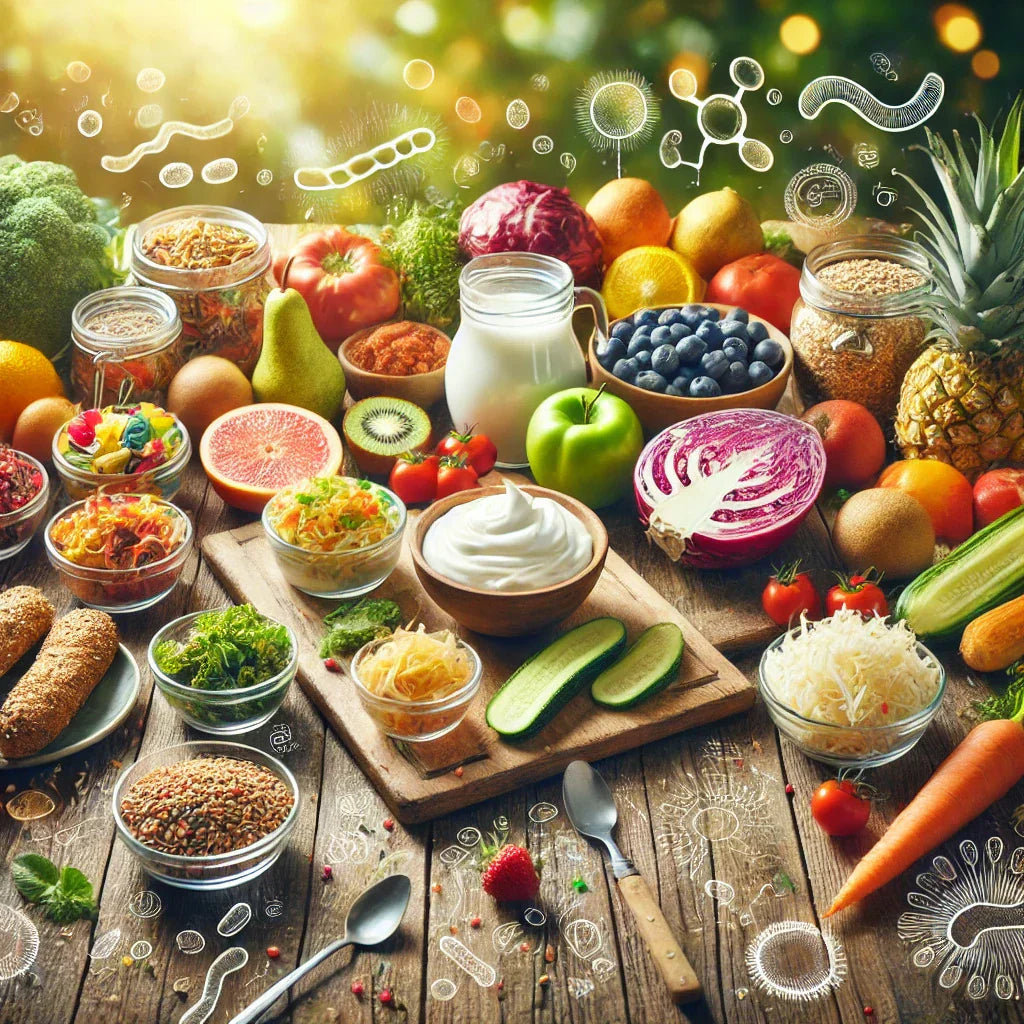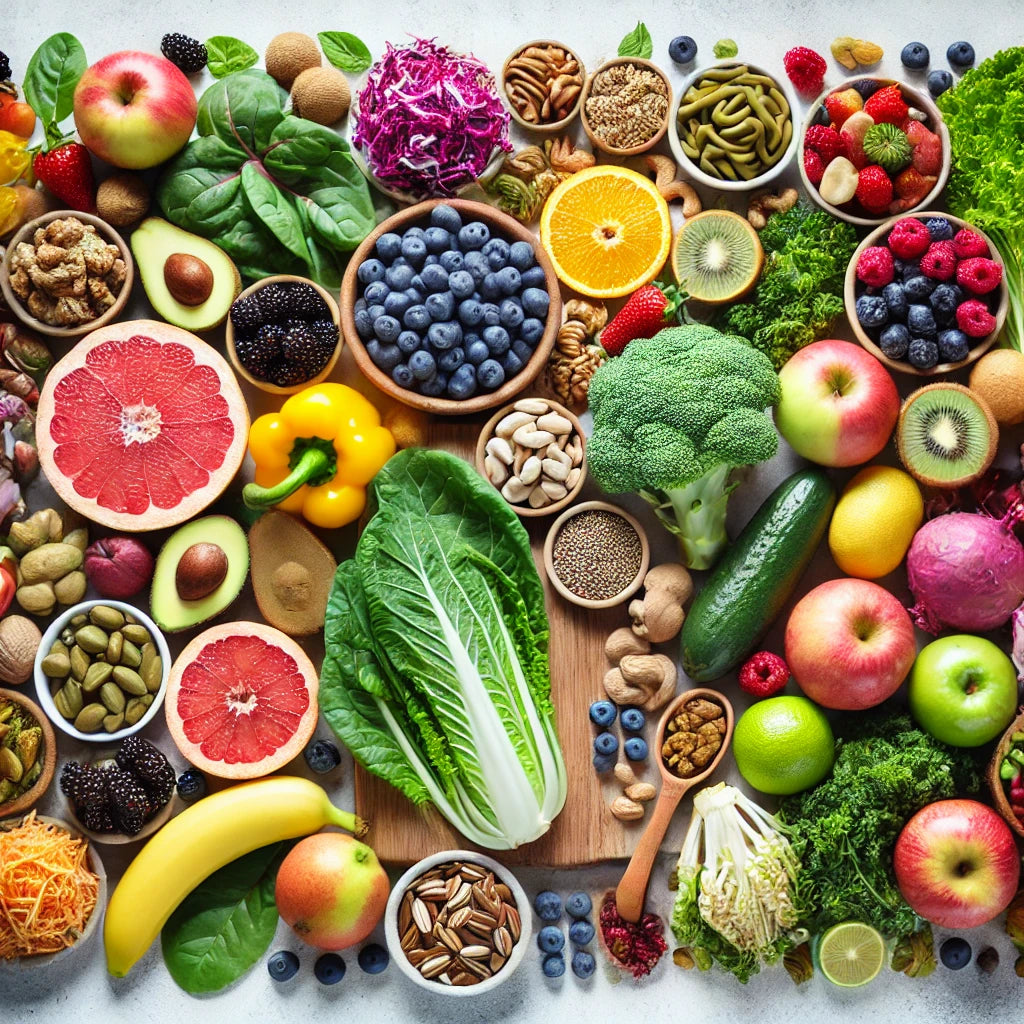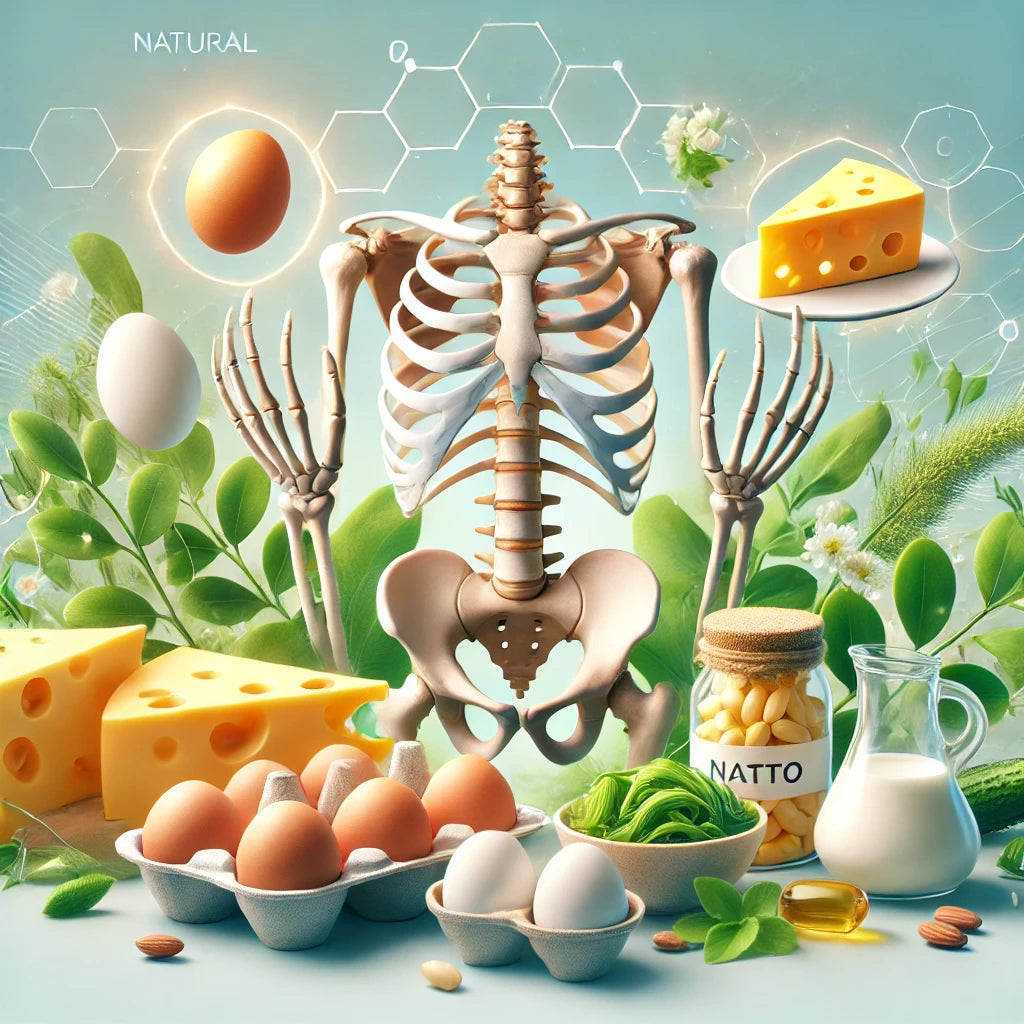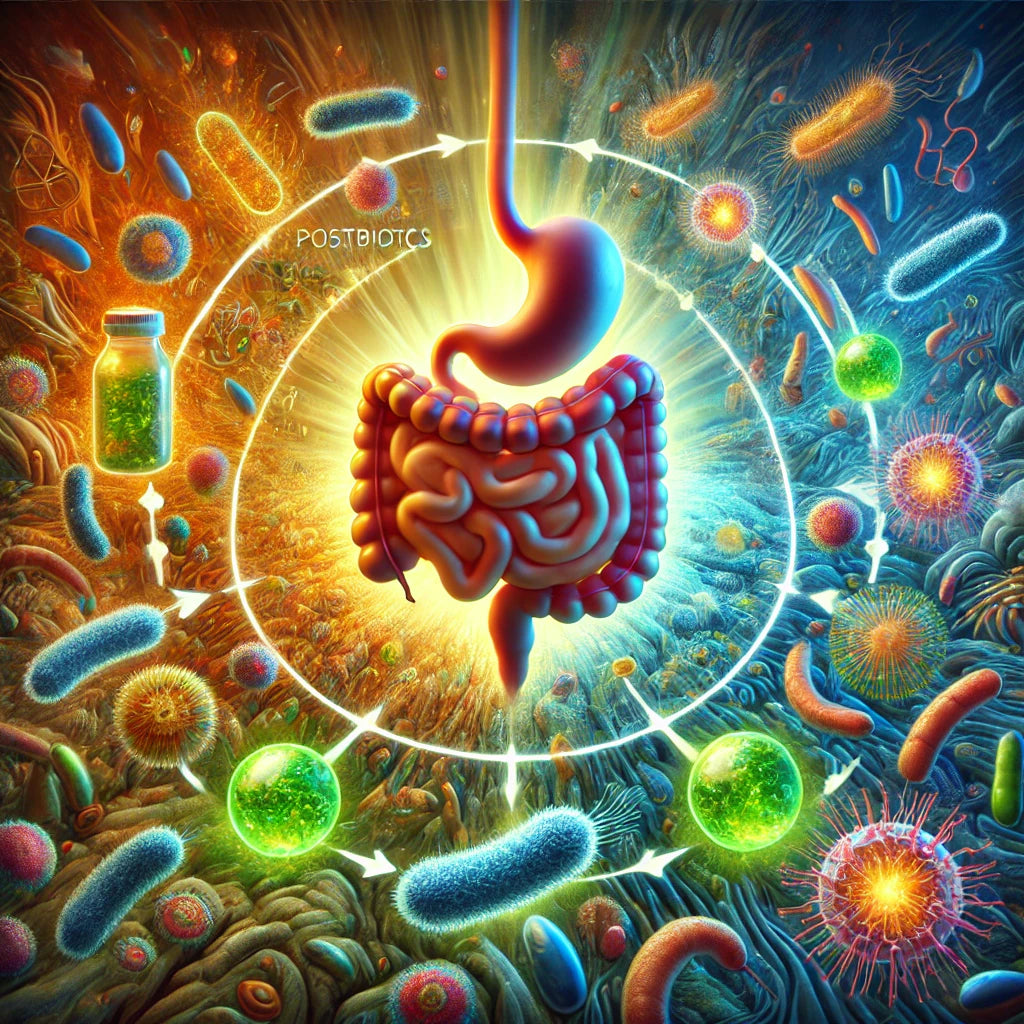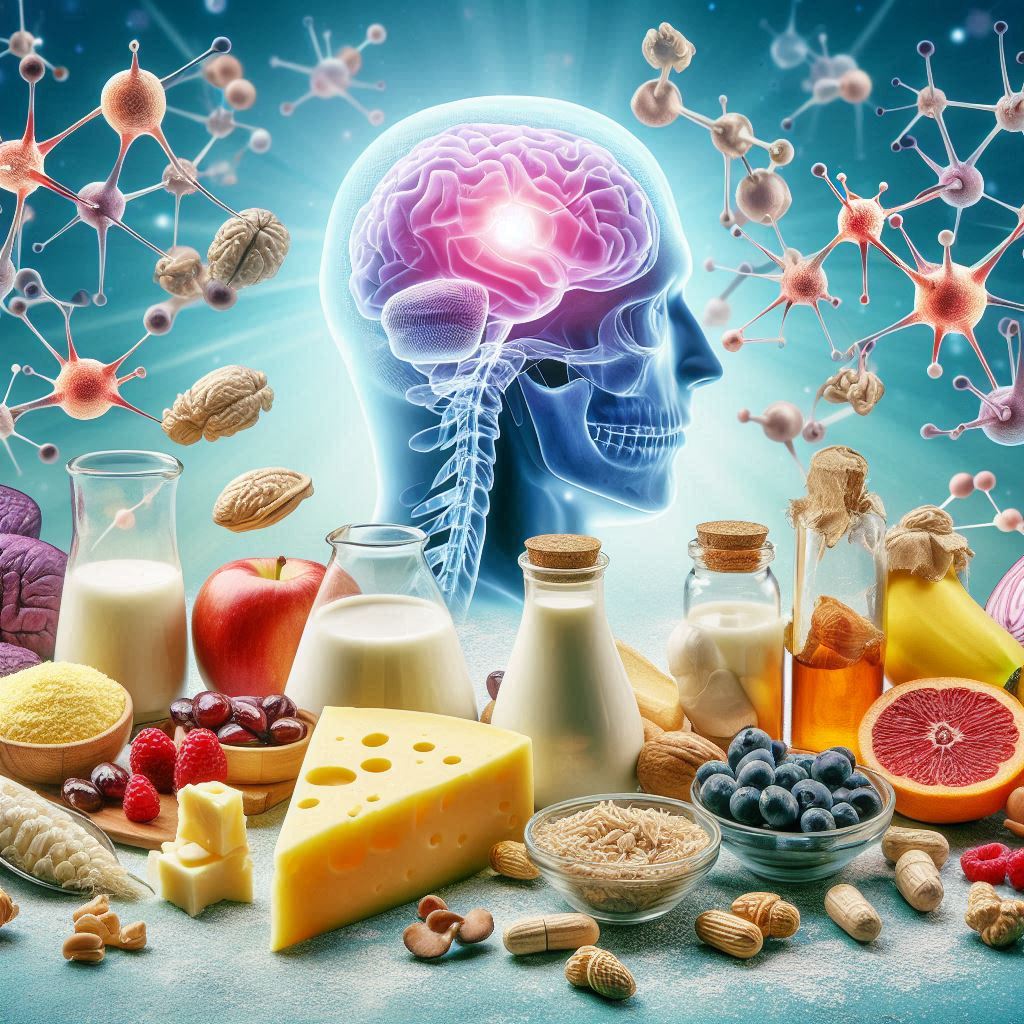News — fermented foods
Feed Your Gut: The Ultimate Guide to a Healthy Microbiome Through Diet
digestive health feed your gut fermented foods gut health gut microbiota healthy diet microbiome nutrition prebiotics probiotics ultimate guide to microbiome wellness
Your gut is home to trillions of microorganisms that play a vital role in your overall health. This ultimate guide will show you how to nurture a healthy microbiome through diet, helping you improve digestion, boost immunity, and even enhance your mood.
Whether you're new to the concept of gut health or are looking to deepen your understanding, this guide offers research-backed insights and practical tips to help you feed your gut for a healthier life.
Eat Raw, Feel Great: The Gut-Healing Power of Raw Foods
digestive balance digestive health energy boost enzymes in raw foods fermented foods fiber-rich diet fresh fruits gut bacteria gut health gut microbiome healing foods inflammation leafy greens natural foods organic diet probiotics raw diet raw food recipes raw foods sprouted grains
Feeling vibrant and energized can often trace back to a healthy, balanced gut. One of the most effective ways to achieve this balance is by integrating raw foods into your diet. From boosting beneficial bacteria to providing essential enzymes, raw foods can nourish your gut and support overall wellness. Understanding the role that raw foods play in gut health can help you make simple yet powerful dietary changes that will leave you feeling great inside and out.
Raw foods are rich in fiber, natural enzymes, and nutrients that help balance the digestive system. Unlike processed foods, which can harm gut health, raw foods often have a cleansing effect. For anyone looking to enhance their digestion, reduce inflammation, and cultivate a healthier lifestyle, exploring raw food options may hold the key to transformation.
Menaquinone: The Key to Strong Bones and Calcium Regulation
bone density bone health calcium and vitamin K2 calcium regulation cardiovascular health fermented foods K2 for bones menaquinone menaquinone and heart health menaquinone dosage menaquinone research menaquinone supplements natto osteocalcin osteoporosis prevention strong bones vitamin K2 vitamin K2 benefits vitamin K2 food sources vitamin K2 MK-7
When it comes to bone health, calcium and vitamin D often steal the spotlight. However, there’s a lesser-known yet equally important nutrient that plays a pivotal role in maintaining strong bones—menaquinone, commonly known as vitamin K2. This fat-soluble vitamin is essential for directing calcium to the bones where it’s needed and away from areas where it can cause harm, such as the arteries.
In this article, we’ll dive deep into the benefits of menaquinone for bone health, how it works in the body, and why it might just be the missing link in your bone-strengthening regimen. Whether you're concerned about osteoporosis, want to prevent fractures, or are simply interested in optimal bone health, understanding the role of menaquinone is key.
Balancing Your Gut Microbiome with Postbiotics
blood sugar regulation butyrate digestion fermented foods gut balance gut barrier gut health immune system inflammation leaky gut metabolic health microbiome postbiotic benefits postbiotic supplements postbiotics prebiotics probiotics SCFAs short-chain fatty acids weight management
The gut microbiome, often called the body’s “second brain,” plays a vital role in our overall health, influencing digestion, immunity, and even mood. Maintaining a balanced gut microbiome is crucial for optimal wellness, and for years, the focus has been on probiotics and prebiotics. However, recent research has revealed the importance of a lesser-known player in gut health: postbiotics.
Postbiotics are the metabolic byproducts produced by beneficial bacteria in your gut. Unlike probiotics, which are live bacteria, postbiotics are non-living compounds, yet they still have powerful effects on health. These compounds can help reduce inflammation, enhance gut barrier function, and improve immune response. Understanding how postbiotics work and incorporating them into your lifestyle can be key to maintaining a balanced gut microbiome.
The Science Behind Fermented Foods and Neurotransmitter Production
fermented food benefits fermented foods GABA gut microbiome gut-brain axis mental health neurotransmitter production probiotics serotonin
Fermentation, the process by which microorganisms like bacteria, yeast, and fungi break down food components such as sugars and starches, not only preserves food but also enhances its nutritional value. This process can lead to the creation of bioactive compounds, including neurotransmitter precursors and even the neurotransmitters themselves. In this article, we’ll delve into the science behind fermented foods and their impact on neurotransmitter production, exploring how they can contribute to better mental health.

